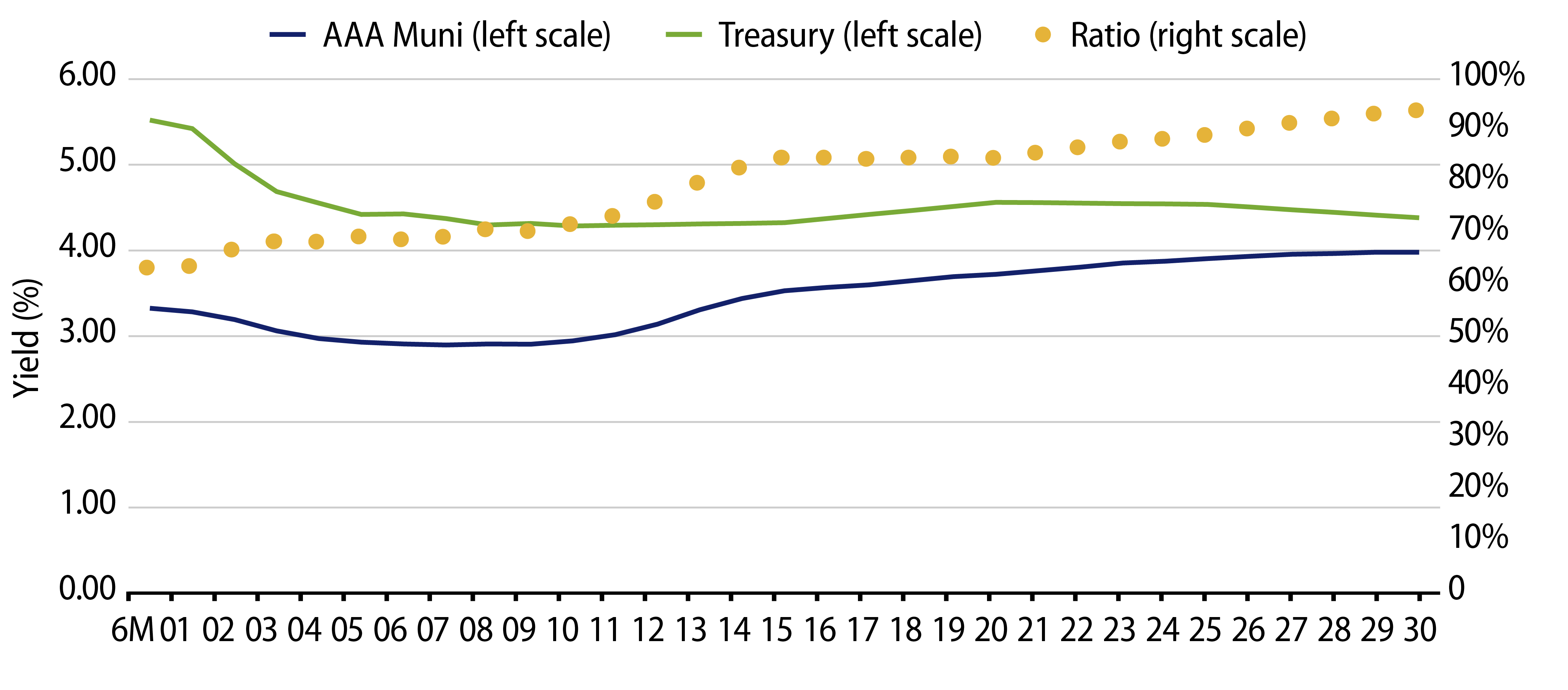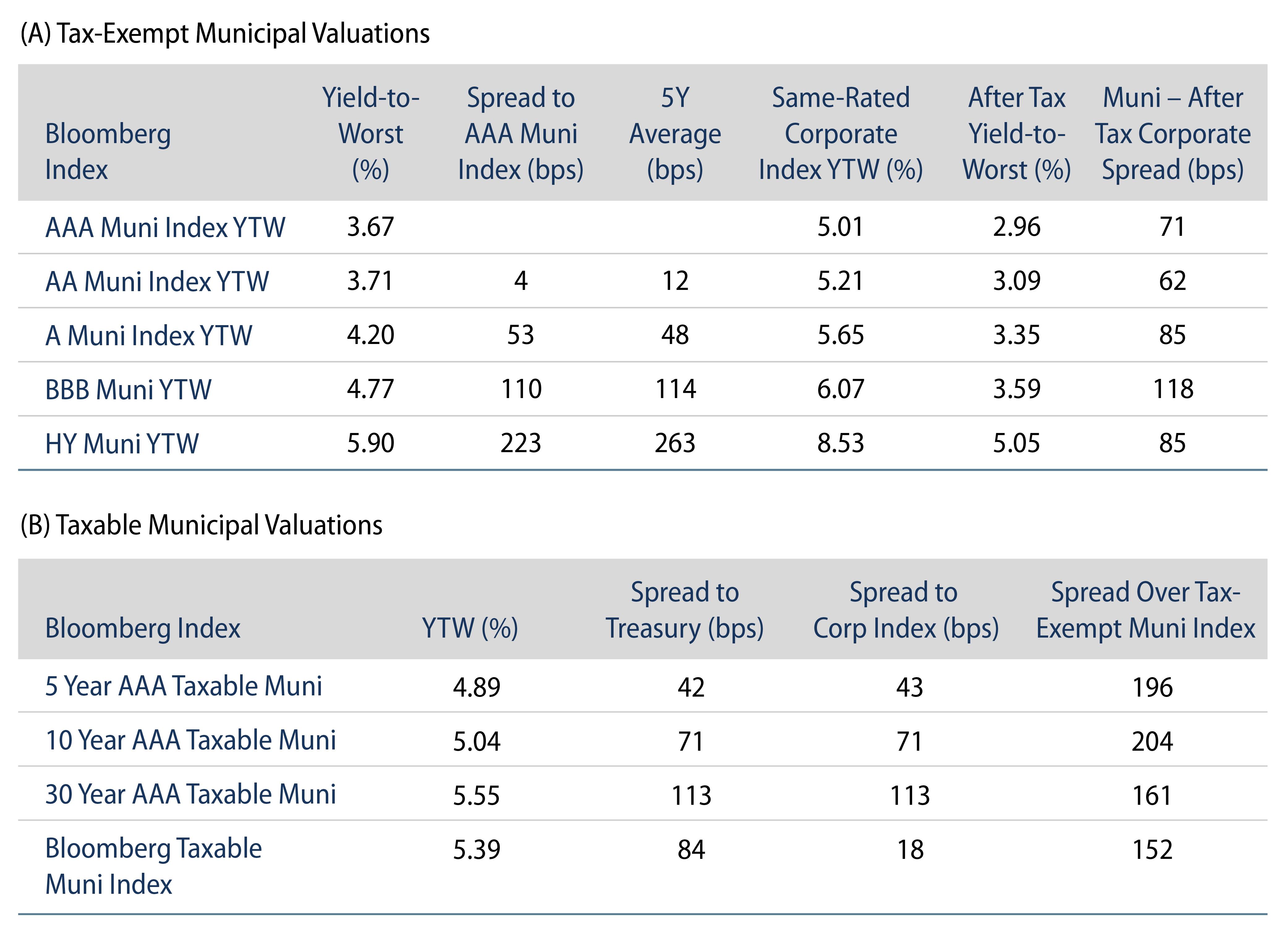Municipals Posted Negative Returns Last Week
Municipals posted negative returns last week as high-grade muni yields moved higher across the curve. Munis trailed Treasuries higher following strong CPI and retail sales data as weaker technicals persisted amid fund outflows. The Bloomberg Municipal Index returned -0.10% during the week, the High Yield Muni Index returned 0.01% and the Taxable Muni Index returned -0.42%. This week we highlight details from the city of Chicago budget forecast released last week and its implications for municipals.
Weaker Technicals Were Driven by Fund Outflows
Fund Flows: During the week ending September 13, weekly reporting municipal mutual funds recorded $117 million of net outflows, according to Lipper. Long-term funds recorded $68 million of inflows, high-yield funds recorded $11 million of outflows and intermediate funds recorded $30 million of outflows. This week’s outflows bring year-to-date (YTD) net outflows to $10.1 billion.
Supply: The muni market recorded $8 billion of new-issue volume last week. YTD issuance of $254 billion is down 8% year-over-year (YoY), with tax-exempt issuance down 1% YoY and taxable issuance down 46% YoY. This week’s calendar is expected to decline to $5 billion. Large transactions include $685 million State Public Works Board of the State of California and $670 million San Diego Unified School District transactions.
This Week in Munis: Chicago Releases Budget Expectations
Last week the city of Chicago released its budget forecast for fiscal-year 2024 (ending December 2024), which included an update on current fiscal-year revenues and longer-term expectations beyond 2024. According to the release, fiscal-year 2023 (ending December 2023) is expected to end with an estimated surplus of $62 million. This year’s projected surplus is slightly better than expected due to revenues outperforming initial expectations by 0.3%, and estimated expenditures outperforming budgeted expectations by 0.7%.
Looking ahead to next year, the city is projecting a deficit of $538 million within the 2024 fiscal budget. The city is anticipating a slight decline in tax revenues paired with over a $500 million increase in expenditures, primarily driven by an uptick in personnel and pension costs. Despite the projected modest revenue decline, Chicago’s revenues have been stable this year, supported by sales taxes and corporate income taxes increasing 3.9% and 0.8% YoY, respectively. Chicago tourism revenues have also significantly rebounded, with hotel taxes increasing 43% YoY.
Notably, this release represents the starting point in Chicago’s budget process and is not yet finalized. Western Asset believes Chicago’s budget expectations appear conservative, but reflect the slowing revenue themes we have observed broadly across the municipal market. Chicago has recently demonstrated the ability to close budget gaps in each of the past two fiscal years to ultimately end the years with surpluses. The projected deficits also partially reflect the city’s commitment to addressing its longstanding pension challenges by fully funding its Actuarial Required Contribution. Western Asset expects potential credit volatility to persist as forecasted budgets beyond 2025 appear more challenged; however, the city appears to be taking the steps needed to address its longer-term challenges.






